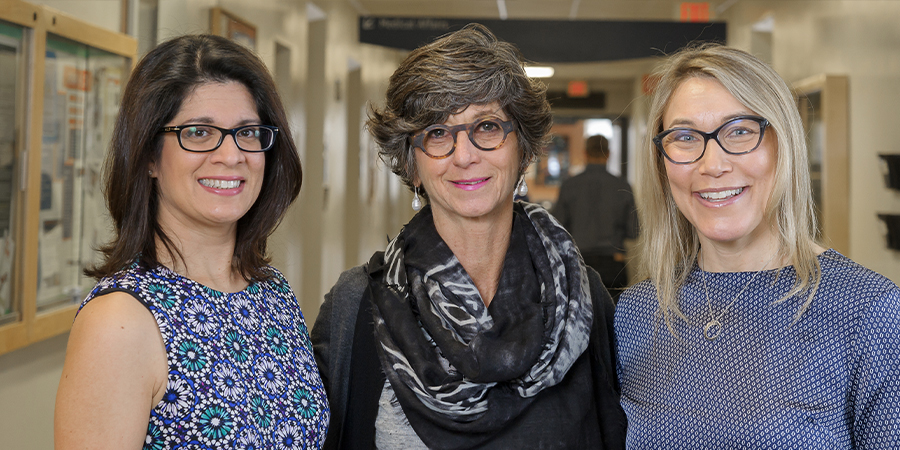Research Services
In addition to leading our own studies, the Centre’s other primary function is to support clinical investigators and researchers in conducting high-quality health research.
Request Services Frequently Asked Questions

Our Research Support Services
From design to execution, Advancing Health provides a broad range of support services including project management, methodology, and regulatory affairs. Advancing Health staff actively manage projects that ultimately contribute to the betterment of health systems at the local, national, and international levels.

Services Type
See available services below.
Request Services
From design to execution, Advancing Health staff provide a broad range of support services. Request a consult today.
Request NowNavigating the Clinical Research Process
It is important to plan all aspects of your clinical research study as early as possible, and prior to beginning your project, to prevent challenges in data collection, human resources, budgets, regulatory compliance, or timelines. Dedicate significant time to designing your study: clearly articulate your objectives, hypothesis, and how you will meet these objectives. If necessary, be sure to obtain professional advice on protocol design, data collection, and analyses. Advancing Health provides a wide range of support services for clinical researchers.
Advancing Health also provides a one-hour free consultation. We recommend that you conduct a literature review and prepare specific questions prior to your consultation to ensure that you get the most out of your consultation. To help you prepare, our staff have prepared questions that they routinely ask during the consultation process. View this document here.

Project Development
How to go from an idea to a proposal to a research protocol.
A proper literature search is integral to defining your research question and designing your study.
Learn MoreIf your research question is too broad, you will have difficulty designing a focused study and collecting data to answer your hypothesis. If it’s too narrow, you will have difficulty finding the appropriate participants.
Learn MoreIf you need to create a proposal to apply for funding, and the funding agency does not have its own template, you can use the Advancing Health template.
Learn MoreCIHR is the primary source of federal funds for health research in Canada; other suggestions for funding include disease-related foundations, industry partners, and local research organizations.
Learn MoreWhile you can use your proposal as a template for your protocol, a proposal is written to only obtain support for your study. A study protocol contains detailed instructions on how the study will be conducted and includes information to meet regulatory requirements.
Learn MoreProject Set-Up
Depending on the complexity of your study and assuming reasonable turnaround times, an estimated timeline for project set-up is from 4 to 9 months.
There can be a significant overlap between Quality Improvement (QI) and research. Generally, QI is conducted to improve or measure the effectiveness of a program or service; research is a more structured investigation designed to contribute to generalizable knowledge.
Learn MoreHealth Canada Clinical Trial Applications (CTAs), ethics submission, contract review, and administrative approvals can often be undertaken simultaneously. Check with your local institution’s research administration for more information.
Learn MoreApprovals required for a clinical research project can include Health Canada, ethics, and organizational approvals, as well as trial registration.
Learn MoreAny contract or agreement necessary to start your research study should be run through your contracts office. This includes confidentiality agreements, sub-site agreements, or industry clinical trial agreements, among others.
Learn MoreAll Health Canada-regulated clinical trials require maintenance of essential documents. It’s strongly recommended that all non-regulated research studies maintain these documents to comply with Good Clinical Practice (GCP) guidelines.
Learn MoreMost Research Ethics Boards require that study team members complete basic training in research ethics, as well as specific training related to the study protocol, like the transportation of dangerous goods.
Learn MoreYou may wish to conduct a needs assessment in advance to determine your human resource requirements to perform the study. For example, how much work will this study entail and what sort of training is required? For Health Canada regulated clinical trials, you are required to conduct this needs assessment prior to hiring staff.
Learn MoreFor Health Canada regulated clinical trials, you are required to provide oversight on the study to ensure it is conducted in accordance with the protocol, SOPs, GCP, and local requirements.
Learn MoreProject Execution
How to carry out your project, including managing recruitment, monitoring, analysis, publications, and archiving.
Recruitment and participant retention can be the most challenging aspect of any clinical research study. A potential study participant may meet all the inclusion/exclusion criteria, but find the time commitment too onerous, the study too complicated, or be worried about how participation may affect their disease. You should have a realistic recruitment plan in place: site databases, social media, and print advertising are just some suggested recruitment strategies. Note that any recruitment materials must be approved by the REB.
Learn MoreOnce the study is complete, you will need to contact a biostatistician (preferably the one who created the statistical section in the protocol, or the statistical analysis plan in regulated studies) to analyze the data. Advancing Health provides one hour of free consultation as well as statistical analysis services at a reasonable cost.
Learn MoreIf you decide to publish a manuscript, each journal has its own format and guidelines for manuscript preparation. For general rules, the EQUAtor website has a searchable database for reporting guidelines.
Learn MoreIf your study is a clinical trial regulated by Health Canada, you are required by Health Canada to retain study documents for 25 years after trial completion. UBC now offers records management/storage services at a reasonable cost.
Learn MoreThere are many other sources of information on designing and executing a research project.
Learn More